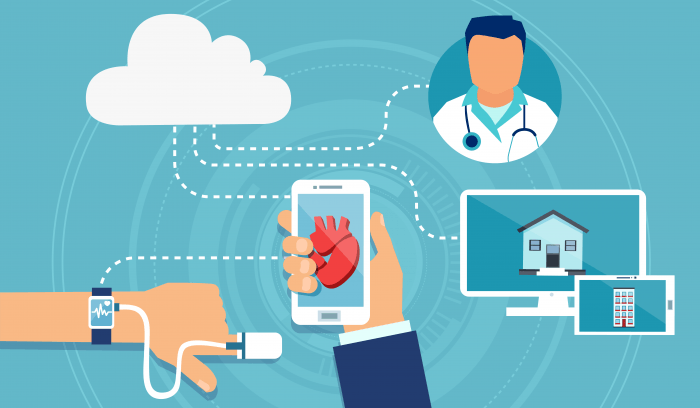The particular Role of AI in Revolutionizing Health care Diagnostics
Healthcare diagnostics, the particular cornerstone of efficient medical treatment, offers been undergoing some sort of profound transformation cheers to artificial intelligence (AI). AI technology are not only enhancing traditional analysis methods but are usually revolutionizing the entire analysis process, offering unparalleled accuracy, efficiency, in addition to accessibility. Let’s explore how AI is reshaping the landscape of healthcare analysis. Enhanced Accuracy and even Precision Just about the most substantial contributions of AJE to healthcare diagnostics is the improvement of accuracy and precision. AI algorithms, particularly those based on deep learning, demonstrate remarkable ability throughout analyzing complex health-related data. For instance, AI systems can easily interpret medical images—such as X-rays, MRIs, and CT scans—with an amount of detail and consistency that surpasses human capabilities. A notable software is in radiology, in which AI algorithms support in identifying abnormalities like tumors, bone injuries, or indications of diseases such as pneumonia. These systems are usually trained on huge datasets of annotated images, allowing these people to recognize patterns that may end up being missed by typically the human eye. Studies have demonstrated that AJE suits or even exceed the classification performance of knowledgeable radiologists, bringing about previously and more correct detection of conditions. Early Detection and Predictive Analytics AI’s ability to method and analyze significant volumes of files quickly allows for early detection and predictive analytics in health-related. By examining historic patient data, including electronic health information (EHRs), genetic information, and lifestyle factors, AI models can easily identify risk factors and predict the likelihood of particular conditions developing. Intended for instance, AI-powered predictive models can determine a patient’s risk of developing serious diseases like diabetes or cardiovascular problems long before signs and symptoms appear. This proactive approach enables health-related providers to carry out preventive steps and customized treatment plans, ultimately improving patient outcomes and reducing typically the burden on health-related systems. Personalized Treatments The concept involving personalized medicine, which usually tailors treatment to the individual features of each individual, is significantly sophisticated by AI. Device learning algorithms can easily analyze genetic details and other personalized health data to recommend specific therapies and interventions of which are most likely to be successful for each person. AI-driven platforms are also being used to design personalized medicine regimens, predict patient responses to several medicines, and optimize dosages. This personalized strategy minimizes trial-and-error in treatment, reduces undesirable effects, and enhances the overall efficacy associated with medical interventions. Efficiency Workflow and Reducing Costs AI distributed by improving diagnostic accuracy and reliability but also improvement workflows and lowering healthcare costs. Automatic systems for inspecting diagnostic images or perhaps processing laboratory outcomes can handle routine responsibilities with good efficiency, clearing up healthcare pros to focus on more sophisticated cases and patient care. Moreover, AI-driven tools can assist inside managing patient details, scheduling, and management tasks, ultimately causing decreased operational costs and more efficient use of resources. By automating repetitive tasks, AJE helps in minimizing human errors and increasing the general efficiency of health-related delivery. Challenges and Considerations Even though the possible benefits of AI in healthcare analysis are immense, there are numerous challenges and things to consider to address. Data privacy and safety measures are critical concerns, as AI methods count on vast quantities of personal health information. Ensuring that individual data is guarded and used ethically is paramount. In addition, the integration of AJE into healthcare requires ongoing validation plus calibration to sustain accuracy and stability. It is important for AI methods to endure rigorous tests and become continually up-to-date to reflect the latest medical information and practices. There is also the need for cooperation between AI builders, healthcare professionals, in addition to regulatory bodies to determine standards and recommendations for the setup of AI technology. Making sure AI tools complement rather than replace human expertise is crucial with regard to maintaining the quality of care. Typically the Future of AJE in Healthcare Analysis Looking ahead, the role of AJE in healthcare diagnostics is poised in order to grow more considerable. Advances in AJE technologies, along with improved access to varied and comprehensive well being data, will additional enhance diagnostic abilities. Innovations such while AI-powered wearable equipment, real-time monitoring, in addition to advanced genomic research are likely to become important aspects of diagnostic techniques. As AI carries on to evolve, the integration into health-related will offer brand new opportunities for enhancing patient outcomes, evolving medical research, and even transforming the way we approach wellness and disease. Embracing these advancements whilst addressing challenges may be key to harnessing the complete potential of AI in revolutionizing health care diagnostics.  In conclusion, AI is not simply a tool but some sort of transformative force in healthcare diagnostics. Their capacity to enhance accuracy and reliability, enable early detection, personalize treatment, plus streamline workflows will be revolutionizing the field. As Latest in Healthcare Technology move forward, the collaboration in between technology and medicine will continue in order to drive innovations that promise a healthier and more effective future.
In conclusion, AI is not simply a tool but some sort of transformative force in healthcare diagnostics. Their capacity to enhance accuracy and reliability, enable early detection, personalize treatment, plus streamline workflows will be revolutionizing the field. As Latest in Healthcare Technology move forward, the collaboration in between technology and medicine will continue in order to drive innovations that promise a healthier and more effective future.